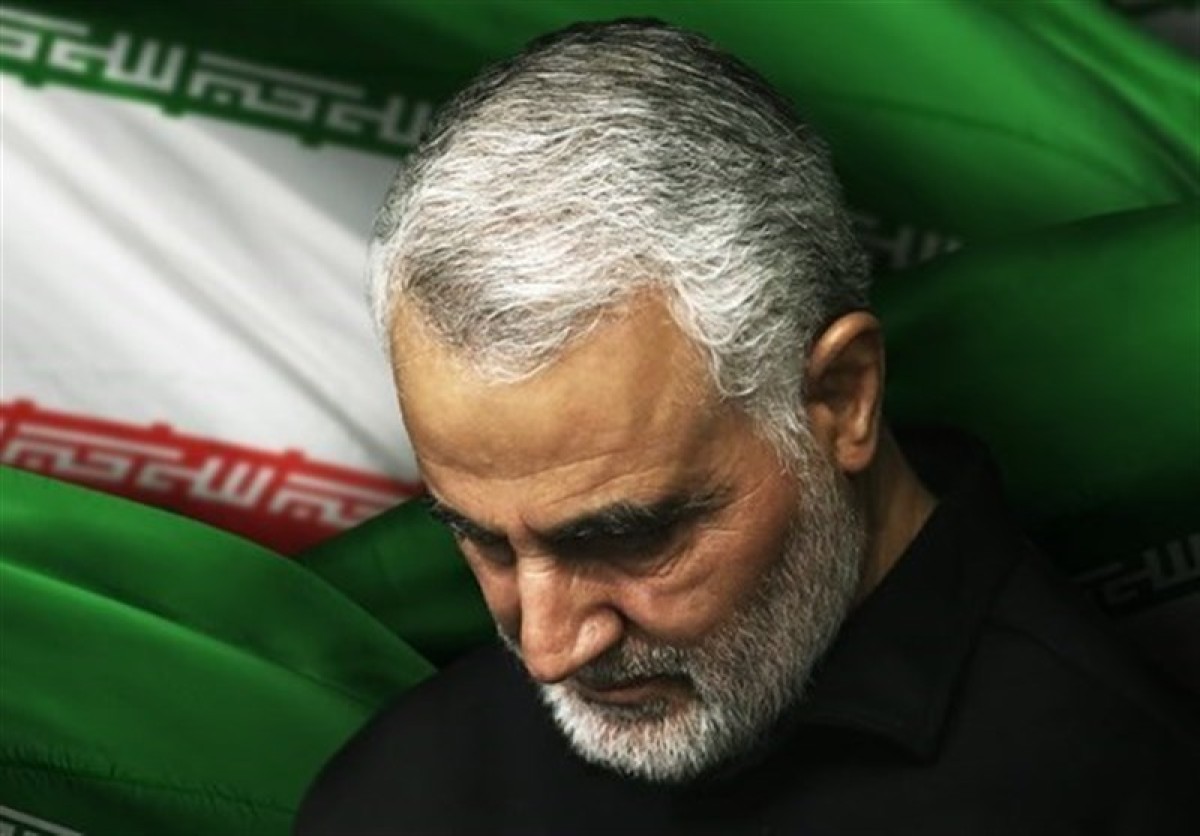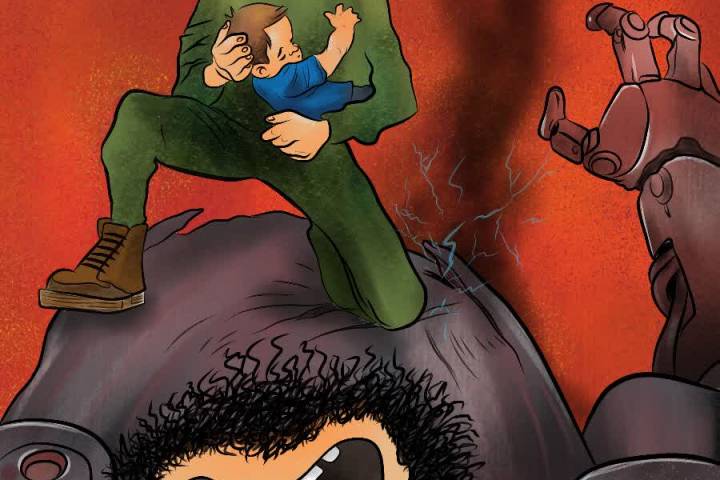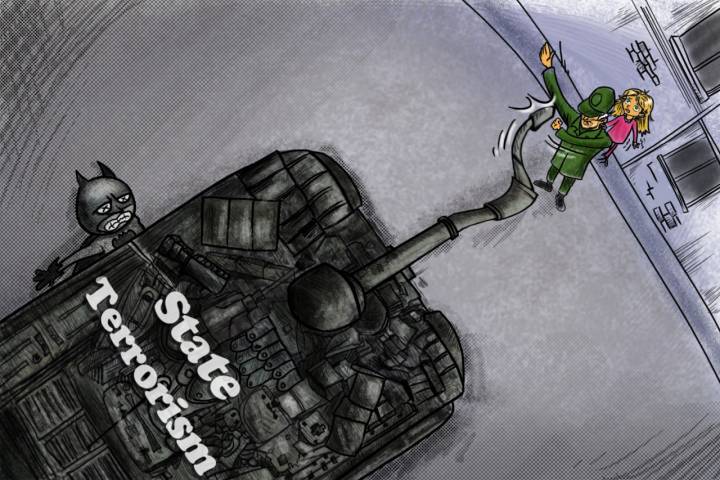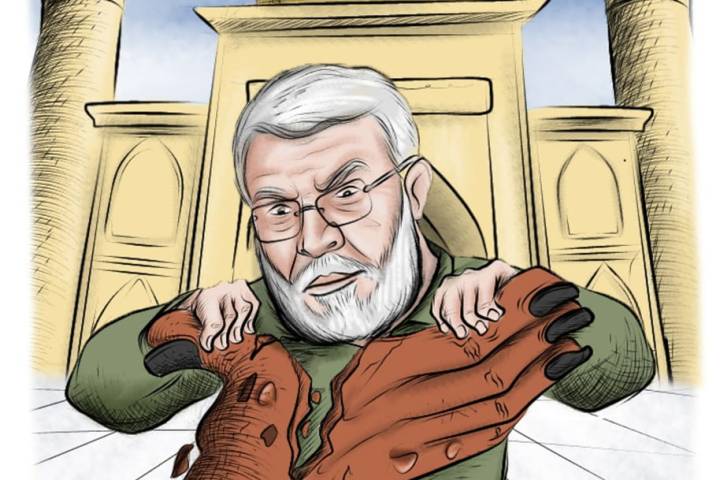From a heavy attack on its military base to Iran and China’s increasing influence in the region, there will be unintended consequences for the U.S. in the coming years
A year has gone and General Qassem Soleimani’s assassination will continue to form the geopolitical issue of the world and the Middle East in specific for the years to come.
United States’ unlawful assassination of Gen. Soleimani Soleimani in Baghdad had two early lessons for the west.
First, despite legitimately varying views on Iran’s political system’s favorability and approval among its people, the exceptional, off-the-cut, and historical participation in mourning of the top Islamic Revolutionary Guard Corps (IRGC) commander disclosed just how the Iranian Public could react against and external threat: locked and loaded and ready to act against any power undermining their integrity.
Second, the US has lost its last chance to defend its leadership position in international affairs. Trump has reconfirmed one last time to the world that if among many foreign policy options he can take the worst one, surely he will do.
The US has embarrassed itself in three ways: A natural tendency to undermine the international norms, enabling negative unplanned consequences to affect its interests through its harmful adventures; unpredictability and unreliability; abnormal decision-making.
The most tangible result of Gen. Soleimani’s assassination could be the fulfillment of his long-nurtured dream: Kicking the US and its allies out of the Middle East – especially Iraq and Syria.
This probable situation will be a dark and scary scenario for Israel and Persian Gulf Arab dictators. Add Iran’s increasing detachment from the JCPOA and its growing nuclear capabilities to this equation and it’s a fine reason for Netanyahu and his allies to shriek and run in distress.
Right after Gen. Soleimani’s assassination, IRGC forces launched rockets against the US Ayn al Asad airbase in Iraq, But Tehran is reserving its potential next major move for US allies in the region, such as Saudi Arabia, UAE, and Israel.
Even before their master plan even implemented possibly soon, Iran’s retaliation has checked two key purposes: firstly, to prove that the US’ efforts to deter the Islamic Republic through eliminating one of its chief commanders have failed miserably; and secondly, to soothe the anguish of the people angry by the loss of their national hero and a nation which demand an eye for an eye.
It would be ideal for Donald Trump and his administration if the story ended here and everybody just forgot what he’s done but it is obvious that the Iranian response is not concluded.
Iran’s major retaliation and hard revenge may unfold for years through asymmetric, hybrid warfare targeting US troops in the region, directly and indirectly through its regional proxies like Hezbollah.
Tensions between the US and Iraq, and inside Iraq is also reaching a billing point. Sunni and Kurdish parties did not vote in Iraq’s parliament for the withdrawal of US troops, obviously due to Trump’s pressure.
The Iraqis have seen such a posture as a form of betrayal, undermining Iraq’s sovereignty, or subservience to the US and its western allies.
Another future scenario is that the US could simply decide to move its troops to Iraq’s Kurdish region. This could be perceived by the Iraqi public as a treasons act against their countries’ sovereignty.
The US may change its position towards the independence of Iraq’s Kurdish region. This move might be appreciated by some of the US allies in the region like Israel, but it could also reignite the dangerous Arab-Kurdish civil war – a war that will again endanger America’s position in the region.
In the end, believing that an independent Kurdish region of Iraq may save the US some time to escape the unintended consequences of its misdeeds in the region is a dangerous miscalculation.
1
A year has gone and General Qassem Soleimani’s assassination will continue to form the geopolitical issue of the world and the Middle East in specific for the years to come.
United States’ unlawful assassination of Gen. Soleimani Soleimani in Baghdad had two early lessons for the west.
First, despite legitimately varying views on Iran’s political system’s favorability and approval among its people, the exceptional, off-the-cut, and historical participation in mourning of the top Islamic Revolutionary Guard Corps (IRGC) commander disclosed just how the Iranian Public could react against and external threat: locked and loaded and ready to act against any power undermining their integrity.
Second, the US has lost its last chance to defend its leadership position in international affairs. Trump has reconfirmed one last time to the world that if among many foreign policy options he can take the worst one, surely he will do.
The US has embarrassed itself in three ways: A natural tendency to undermine the international norms, enabling negative unplanned consequences to affect its interests through its harmful adventures; unpredictability and unreliability; abnormal decision-making.
The most tangible result of Gen. Soleimani’s assassination could be the fulfillment of his long-nurtured dream: Kicking the US and its allies out of the Middle East – especially Iraq and Syria.
This probable situation will be a dark and scary scenario for Israel and Persian Gulf Arab dictators. Add Iran’s increasing detachment from the JCPOA and its growing nuclear capabilities to this equation and it’s a fine reason for Netanyahu and his allies to shriek and run in distress.
Right after Gen. Soleimani’s assassination, IRGC forces launched rockets against the US Ayn al Asad airbase in Iraq, But Tehran is reserving its potential next major move for US allies in the region, such as Saudi Arabia, UAE, and Israel.
Even before their master plan even implemented possibly soon, Iran’s retaliation has checked two key purposes: firstly, to prove that the US’ efforts to deter the Islamic Republic through eliminating one of its chief commanders have failed miserably; and secondly, to soothe the anguish of the people angry by the loss of their national hero and a nation which demand an eye for an eye.
It would be ideal for Donald Trump and his administration if the story ended here and everybody just forgot what he’s done but it is obvious that the Iranian response is not concluded.
Iran’s major retaliation and hard revenge may unfold for years through asymmetric, hybrid warfare targeting US troops in the region, directly and indirectly through its regional proxies like Hezbollah.
Tensions between the US and Iraq, and inside Iraq is also reaching a billing point. Sunni and Kurdish parties did not vote in Iraq’s parliament for the withdrawal of US troops, obviously due to Trump’s pressure.
The Iraqis have seen such a posture as a form of betrayal, undermining Iraq’s sovereignty, or subservience to the US and its western allies.
Another future scenario is that the US could simply decide to move its troops to Iraq’s Kurdish region. This could be perceived by the Iraqi public as a treasons act against their countries’ sovereignty.
The US may change its position towards the independence of Iraq’s Kurdish region. This move might be appreciated by some of the US allies in the region like Israel, but it could also reignite the dangerous Arab-Kurdish civil war – a war that will again endanger America’s position in the region.
In the end, believing that an independent Kurdish region of Iraq may save the US some time to escape the unintended consequences of its misdeeds in the region is a dangerous miscalculation.
1
Abu Mahdi
Abu Mahdi al-Mohandes
Abu Mahdi al-Mohandis
Abu Mahdi al-Muhandis
America
American
Americans
anti-terrorist
Arab-Kurdish
assassination
attacks
Baghdad
Bombs
China
commander
commanders
Donald J. Trump
Donald Trump
Gen. Soleimani
general soleimani
General Soleimany
qasem soleimani
Haj Qasem soleimani
Hard revenge
hard revengre
IRAN
iranian
Iranian embassy
Iraq
Iraqi
Iraqi people
IRGC’s Quds
Israel
IsraelCrimes
Israeli
Martyr Qassem Soleimani
Martyr Soleimani
middle east
military
people
poster soleimani
Qasem Soleimani
Qassem soleimani
Saudi
Saudi Arabia
Saudi Arabia's
saudi crimes
saudi crims
saudiArabia
severe revenge
Soleimani
Soleymani
Sunni
territories
terrorism
Terrorist
terrorists
trump
UAE
US
USA
Zionism
Zionist
Zionist Entity
Zionist regime






Comment
Post a comment for this article